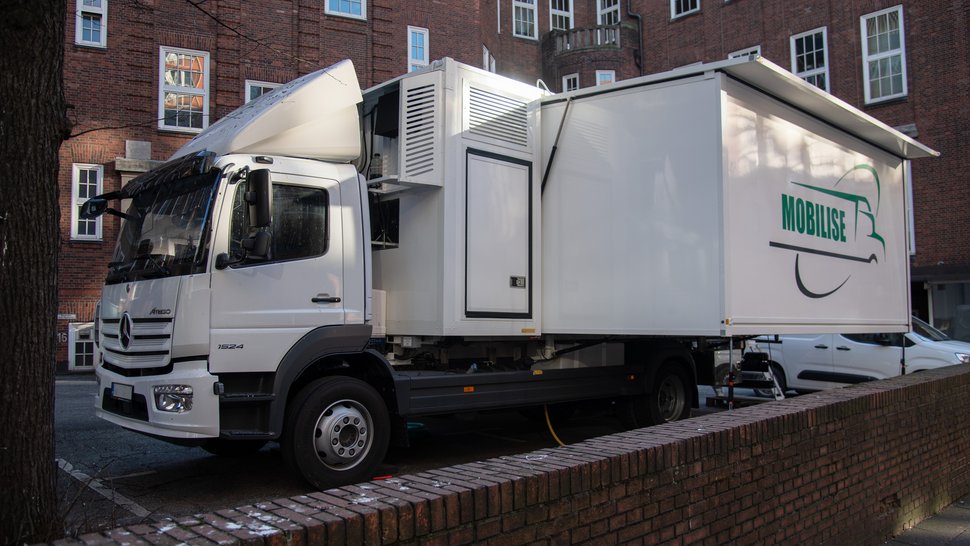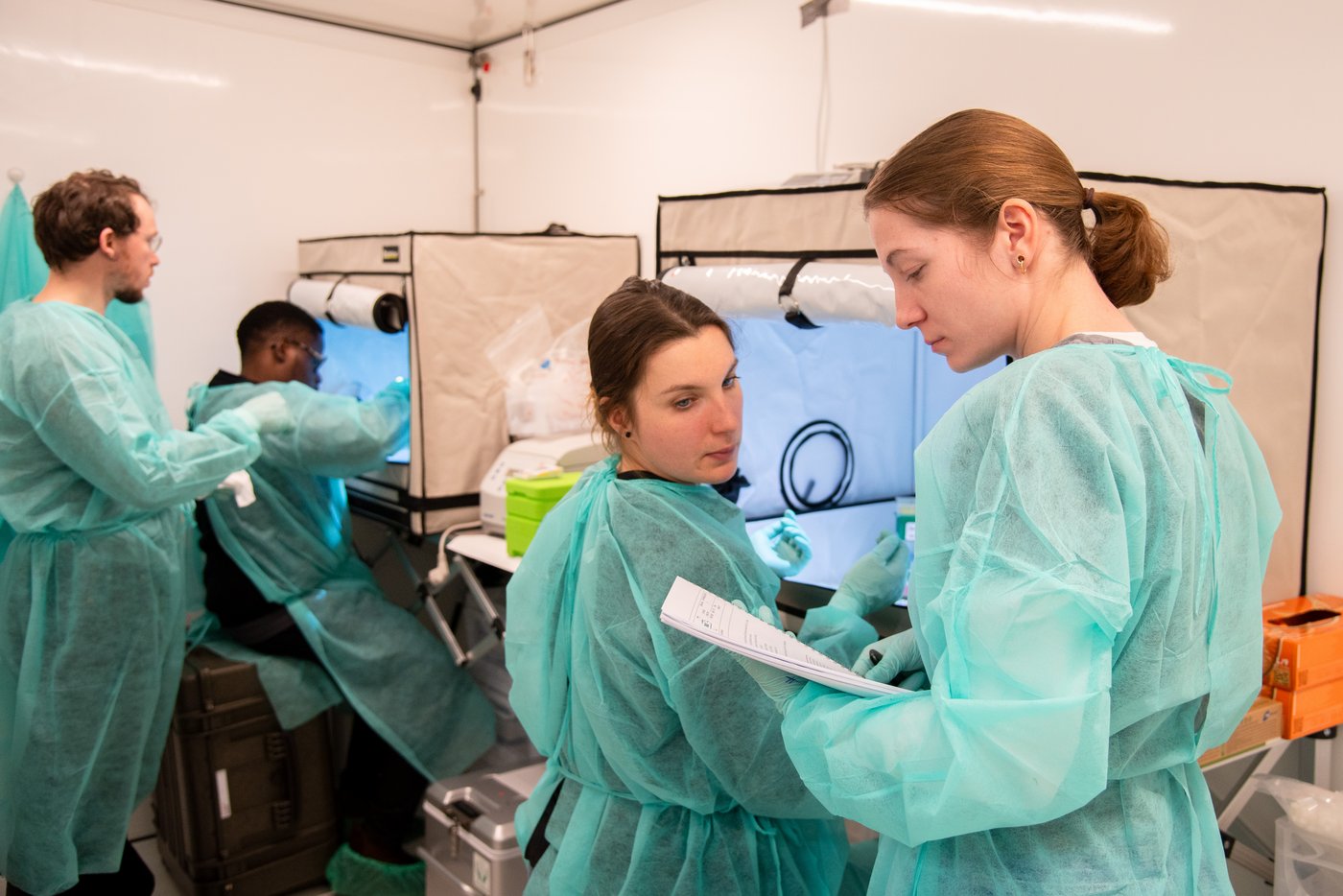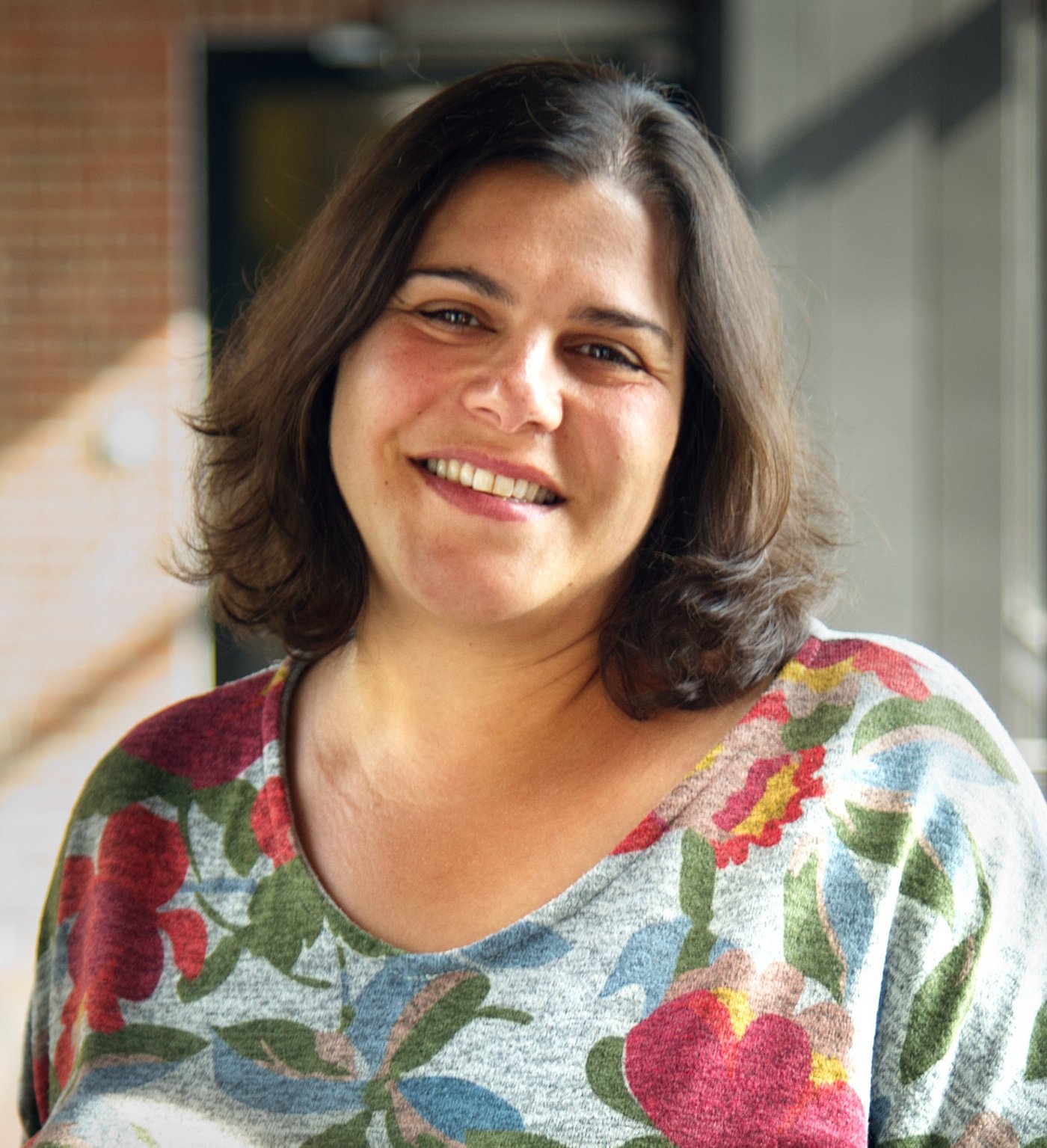Mobile high-security laboratory MOBILISE is ready for use
The EU-funded research project MOBILISE is reaching a crucial phase: The specially developed high-security truck is completed and ready for use. The mobile laboratory, developed under the leadership of the Bernhard Nocht Institute for Tropical Medicine (BNITM) and its eight European partners, will travel throughout Europe and Africa in the coming months to investigate and more rapidly detect zoonoses – infectious diseases transmitted between animals and humans – on-site.

An expansive visit to the Bernhard Nocht Institute for Tropical Medicine (BNITM): The MOBILISE laboratory truck was parked in the backyard for several weeks. The sides of the white truck had been extended and transformed into training rooms. Inside, laboratory experts rehearsed the emergency.

For two weeks, specialists from national health organisations in the partner countries were trained in the mobile laboratory. They learned how to reliably diagnose viruses in humans and animals under field laboratory conditions. The training is a central component of the project: Only when all teams can safely operate the laboratory will it be operational worldwide.
Practical use begins in early May. The truck will support epidemiological field missions in Germany, Austria, Greece, and Tanzania. The goal is to identify potential disease outbreaks at an early stage and collect scientific data on zoonoses. The researchers are working closely with local health authorities. This cooperation aims not only to identify acute health risks but also to strengthen long-term disease surveillance capacities in the partner countries.
MOBILISE will run until October 2025. Until then, the mobile laboratory will be tested and optimised in as many scenarios as possible.
"We have developed a flexible system that brings laboratory diagnostics to where they are urgently needed," says Dr Florian Gehre, project coordinator at BNITM. "Now the crucial phase begins: real-life deployment under field conditions."


Dr Muna Affara, project coordinator, also emphasises the importance of the mission: "With this mobile laboratory, we are strengthening international cooperation in disease surveillance. Our goal is to share knowledge and create structures that will last beyond the project."
Sustainability plays a central role in the development of the new generation of mobile laboratories. Equipped with 4.5 kW photovoltaics and energy-efficient laboratory equipment, the laboratory reduces its CO₂ footprint and is largely independent of fossil fuels. This concept supports the goals of the European Green Deal, which aims to make Europe climate-neutral by 2050.
In addition to the Bernhard Nocht Institute, eight other European partners are involved in the project:
Austria: Austrian Institute of Technology (AIT) and Austrian Agency for Health and Food Safety (AGES)
Estonia: MDSC Systems OÜ
Germany: Friedrich Loeffler Institute (FLI)
Greece: EXUS AI Labs, Athens, and National Public Health Organization
Romania: Red Cross Bucharest and BEIA Consult International
Further information about the project and the consortium can be found at https://mobilise-lab.eu.
Contact person
Dr Muna Affara
Department of Infectious Disease Epidemiology
Email : affara@bnitm.de
Dr Florian Gehre
Department of Infectious Disease Epidemiology
Email : gehre@bnitm.de
Julia Rauner
Public Relations
Phone : +49 40 285380-264
Email : presse@bnitm.de
Further information







